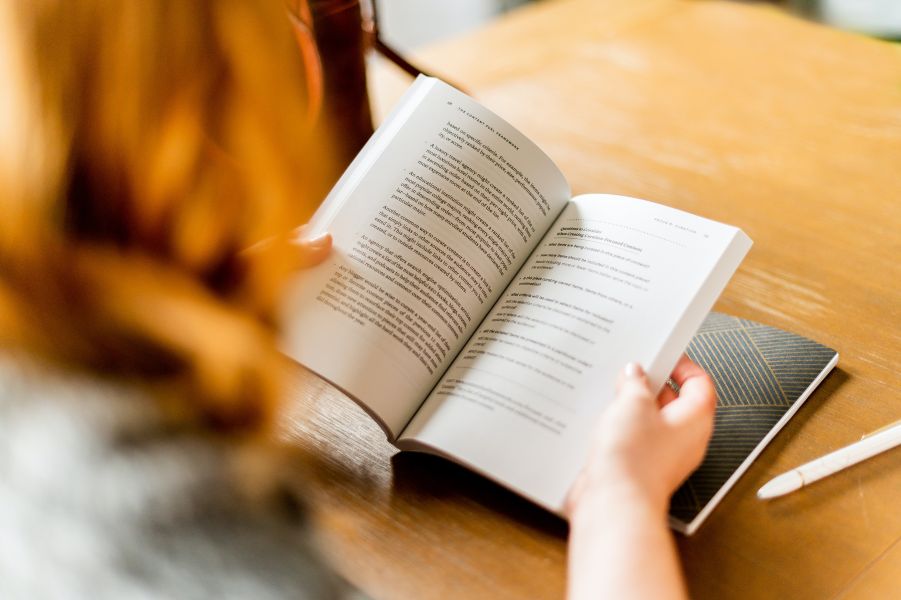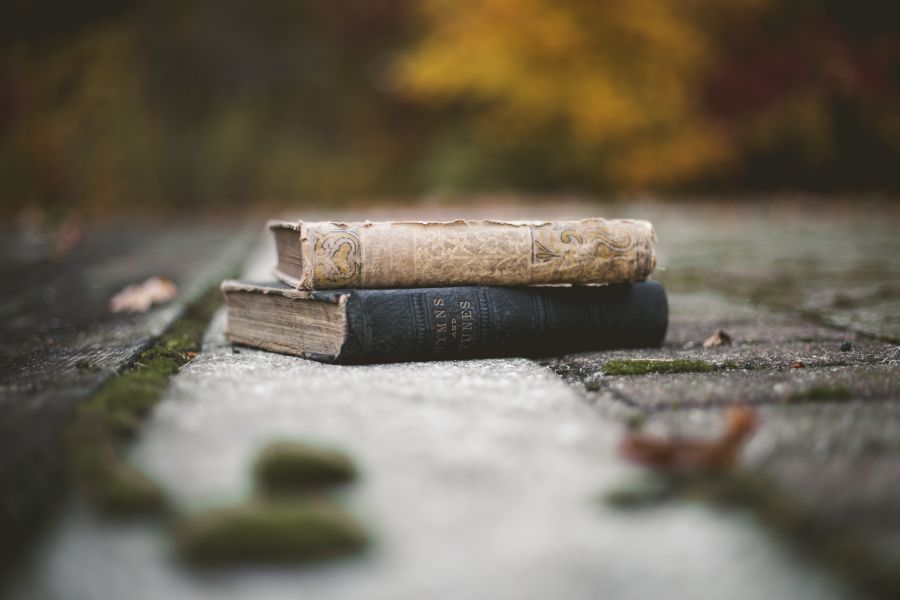Unit 4 Friends together教学计划方案
重点词汇activity活动 cold感冒 fever发烧 film电影 headache头痛 housework家务 revision复习 stomach-ache胃疼 throat喉咙 toothache牙痛
语法聚焦
以why引导的特殊疑问句;
. 连词because等的用法;
以How often等引导的特殊疑问句;
频度副词:once, twice等的用法
课文英汉对照
Think and say
Eddie and some other people are not feeling well.They go to see Doctor Chen.
埃迪和其它一些人身体不舒服。他们去看陈医生。
1 . Why do I always have a headache? 为什么我总头痛?
You always have a headache because you watch too much television.你患头痛是因为你看太多的电视。
2. Why do I always have a stomach-ache? 为什么我总胃疼?
Why do I always have toothache? 为什么我总牙疼?
Why do I always have a cold and a fever? 为什么我总感冒发烧?
Why do I always have a sore throat? 为什么我总咽喉痛?
Do you have enough exercise? 你锻练的够吗?
Have you eaten too many sweets and chocolates? 你吃了太多的糖和巧克力吗?
Do you always forget to have lunch? 你总是忘记吃午饭吗?
Have you eaten too much spicy food? 你吃了太多的辛辣食物吗?
A survey
What's your favourite indoor/outdoor activity?你最喜欢的室内/户外活动是什么?
My favourite indoor/outdoor activity is.我最喜欢的室内/户外活动是……
In groups,find out your classmates’ favourite indoor and outdoor activities.
小组练习,找出你的同学最喜爱的.室内和户外活动。
Read and say
Danny's timetable 丹尼的时间表
?Do some revision once a month 每月复习一次
?Watch television three times a day 一天看三次电视
?Practise swimming twice a year 一年两次练习游泳
?Help do the housework never 从来不帮着做家务
S1:How often does Danny do some revision? 丹尼多久复习一次?
S2:He does some revision once a month 他一个月复习一次。
S1:How often does Danny…? 丹尼多久????
Think and write
Danny's timetable is not very good. Think of a good timetable for yourself .
丹尼的时间表不太好。为你自己想一个更好的时间表。
重点难点解析
1. Why do I always have a headache?为什么我总头疼?
▲always是频度副词,意思是“总是”,即“每次都是”“毫无例外”。如:
1)He always stays up very late into the night.他总是熬到深夜。
2)We should always bepolite to others.无论何时,我们都应该礼貌待人。
常见的频度副词还有usually(通常),often(通常),sometimes(有时),hardly ever(很少,偶尔)never(从不)等。
2. Do you have enough exercise?你进行足够的锻炼吗?
▲enough作为副词修饰形容或副词时必须位于被修饰的词语之后,不能位于其前。作为形容词修饰名词时一般位于其前,也可位于其后。enough后面通常接不定式短语或介词for短语。如::
1)The question is easy enough.这个问题很容易。(不说enough easy)
2) Tom didn't do his lessons carefully enough.汤姆做功课不够认真。
3)There is enough food (food enough) for everybody in the dining hall.餐厅有足够的食物供大家吃。
4)It is light enough to play basketball.要打篮球这样的光线还是够亮的。
3. Do you always forget to have lunch?你总是忘了吃午饭吗?
▲ forget的反义词是remember,在forget和,ember等动词后面,既可以接一ing动词,也可以接不定式,但意义完全不同。在forget和remember十动词一ing结构中,动名词所表示的动作发生在forget和remember这个心理过程之前,即记得过去曾经做过某事(做事在先,记住在后)。而在forget和remember+动词不定式结构中,动词不定式所表达的动作发生在forget和remember这个心理过程之后,即记着(不忘记)去做某事(记住在先,做事在后)。如:
1)She remembered posting(having posted) the letter at the post-office.他记得在邮局寄了那封信。(已经寄了)
2)She remembered to post the letter at the post-office.他记得要在邮局寄那封信。(将要去寄)
3)I forgot to ask him his email address.我忘了问他要他的电子邮件地址。
4)I forgot asking him his email address.我忘了曾问他要过他的电子邮件地址。
4. Have you eaten too much spicy food?你是否吃了太多的辛辣食物?
▲too much可修饰不可数名词,在句中作定语,也可单独使用,相当于一个代词,在句中可作表语或宾语,还可作副词,修饰动词,在句中作状语,表示“过于”“太多”(=more than enough)。如:
1)I drank too much beer last night.昨天晚上我啤酒喝得太多了。(作定语)
2)He has too much trouble in his life.他生活中的麻烦太多了。(作定语)
3)The work is too much for me.这工作我干不了。(作表语)
4)I don't enjoy reading too much.我不是非常喜欢看书。
5)She talks too much.她说的话简直太多了。(作状语)
【注】too much一般不能单独用在be动词之后。我们可以说There was too much noise.但是我们不能说The noise was too much
【注】作定语时,如果要修饰可数名词,可用too many。如:There are far too many people here.这里的人太多了。5. How often does Danny do some revision?丹尼多久复习一次?
▲how often意为“多久一次”,指动作发生的频率,与一般现在时或一般过去时连用,回答一般是用表示频率的副词,如:once, twice, three times... sometimes, often,咖to often, never等。如:
①"How often do you watch TV?" "Three times a week.” “你们多长时间看一次电视?” “一星期三次。”
②"How often do you want us to visit you?" "Twice a month is OK.”
“你希望我们多长时间看你一次?” “一个月两次就行了。”
③"How often do they have a dancing party?" "Usually, once every other week.”
“他们多长时间举办一次舞会?” “通常每两周举办一次。”
④"How often does Li Ming make his diary?" "Sometimes once a week.’
“李明多长时间写一次日记?” “有时候一个星期一次。”
More practice
Exploring Asia--International Cities探索亚洲?国际化都市
Beijing
Beijing is the capital of China.It is in North China. You can find museums,palaces and parks there.Many tourists go sightseeing in those places. They always visit the Great Wall. There are more than 12 million people. in Beijing .They like riding bicycles.北京是中国的首都。位于华北地区。那有很多博物馆,宫殿和公园。许多旅游者去那些地方观光游览。他们总是要到长城去游览。北京有一千二百多万人口。他们爱骑自行车。
Tokyo 东京
Tokyo is the capital of Japan. It is east of Beijing. You can see a lot of tall buildings,huge department stores and famous hotels there. Tourists usually go shopping in Tokyo.There are about 12 million people in this city.They love eating sushi.东京是日本的首都。位于北京的东面。在那你能看见许多高楼大厦,巨型百货商店和著名的旅馆。旅游者通常在东京购物。在这个城市中大约有一千二百万人。他们喜欢吃寿司。
Bangkok 曼谷
Bangkok is the capital of Thailand. It is south-west of Beijing. There are plenty of temples and beaches in Thailand. A lot of tourists enjoy swimming in the sea at these beautiful beaches. There are about five million people in Bangkok .The people in Thailand love eating fruit. They also love eating spicy food. 曼谷是泰国首都。它位于北京西南。在泰国有许多寺庙和海滩。大量游客喜欢在这些美丽的海滩边的海水中游泳。曼谷大约有五百万人口。泰国人爱吃水果。他们也喜欢吃辛辣食品。
1. Where do tourists always visit in Beijing? They always visit the Great Wall in Beijing.
在北京,旅游者总要去哪参观?旅游者总要去长城参观。
2 . What do people in Tokyo love eating? They love eating sushi.
在东京人们喜欢吃什么?他们喜欢吃寿司。
3.What do tourists enjoy doing in Bangkok? They enjoy swimming in the sea at these beautiful beaches.
旅游者喜欢在曼谷做什么? 他们喜欢在这些美丽的海滩边的海水中游泳。
4 . How far is it from Beijing to Tokyo? It's about 2100 kilometres.
北京到东京有多远?大约2100千米。
5 . How long does it take to travel from Beijing to Bangkok by air? It's about four and a half hours.
从北京到曼谷乘飞机旅行要长时间?大约4.5小时
Ask and answer
Your friends will come to visit you soon.What have you planned for them?
你的朋友们很快就会来你处游览。你计划为他们做什么?
In pairs,take turns to ask and answer the questions below.
结对练习,轮流问答下列问题。
Where will you take your friends to?
When will you take them there?
Where is the place?
How far is it from your home?
How are you going to get there?
How long does it take by…?
你会带你的朋友们去哪?
你将何时带他们去那?
那个地方在哪?
离你家有多远?
你将怎样到那?
牛津英语七年级下册Unit 3教案
Welcome to the unit
I. Objectives:
1.To introduce the topic of places and transport.
2.To activate their existing vocabulary and learn the meanings of new words
related to places and transport.
3.To talk about visits and means of transport.
II. Language Points:
单词: 1. follow 2. north 3. northwest 4. again 5. know 6. south 7. southwest
词组: 1. go down 2. go up 3. be sure 4. be afraid 5. the Sunnyside Garden 6. bus stop 7. by underground 8. know the way 9. have to
句子: Follow me.
Come with me.
Don’t be afraid.
Let’s go down here. ------No, I can’t.
------Well, let’s do.
------OK. We can go by bus/by underground/by van
III. Suggestion:
1. Review and warm up:
(1) 学生向同伴描述自家周围环境(课前让学生画一张画,说明自家周围建筑的名称);
(2) 呈现一张简图,让学生边听边填出正确名称:
Police station Bookstore China Bank
____________________________________________________
BEIJING WEST ROAD
____________________________________________________
Huacheng Supermarket Ninghai High School
④ My house ⑤
My home is on Beijing West Road. It is between Huacheng Supermarket and Ninghai High School. From my home we can see a bookstore on the opposite side of the road. A bus stop is in front of the bookstore. A police station is on the right of the bookstore. On the left, a China Bank is next to the book store. You can also find a shopping mall nearby.
2.Comic Strip Finding Your Way.
(1) Present:
1)Questions:
Where are Hobo and Eddie standing? (On top of a hill)
How can they go down the hill? (Eddie jumped down/ Hobo climbed down)
What does the signpost say? (It says “Dogs this way”)
Will they have to go up the hill? (Yes, they will.)
2)Sum up: (评价)
3)补充训练:
A. Drill “Let’s…”. “Don’t be afraid”
a.Let _____(we) go to the cinema.
b. -A: It’s raining. Let’s take a taxi. (同义句:Shall we go by taxi?)
-B: That’s a good idea, but I have no money with me.
-A: Never mind. I’ve got some.
B:Translate the following into Chinese:
a. Don’t be too tired.
b.Don’t be late for school.
c.Don’t be so sure.
d.I will go with you. Don’t be afraid.
e.Don’t do it like that.
f.Tom with his friends is going up the hill.
g.Let me help you carry it.
h.I’m afraid Neil is still at school.
i.Some of the girls are afraid of dogs.
3.Let’s go on an outing.
Come to Part A.
Present and question:
Where is Beijing? ------Beijing is in the North of China.
Which city is north of Nanjing? ------Tianchang City is.
What’s north of Xuanwu Lake? ----Nanjing Railway Station is north of Xuanwu Lake.
Our playground is north of Caochangmen Bridge.
Our school gate opens to north.
I’m lost. Which direction is north/south?
The birds fly south in winter.
And also northwest, southwest, northeast , southeast.
Explain the context and instructions to the class.
Pay attention to the directions on the map. i.e. north----up; south----down; west----left; east-----right
?Go up to +重要地方,大地方;go down to +小地方
Read aloud:
1. the zoo
2. north of Beijing Sunshine Secondary School
3. the Sunnyside Garden
4. northwest of the zoo
5. the Lake Park
6. southwest of Beijing Sunshine Secondary School
补充归纳:地方名称(评价)
练习册What are these? Write the names in the blanks.
Complete and check A
Present Part B:
If you want to go to Wutai Stadium/Gymnasium, what will you take? I often play badminton there. So I take my badminton racket and some shuttlecocks with me. I live not far from there. I go there by bike. I never take a taxi there, haha.
Yangzhou is east of Nanjing, what shall we go by if we go there for a spring outing?-----We’d like to go there by bus. And also speak out some sentences with “north” , “ south”
London is to the west of China. My father went there by aeroplane last year.
Look at the map on page 39, the Sunnyside Garden is northwest of the Sunshine Secondary School. We can go there by underground. Shall we take the underground to go there? Yes. Let’s go there by underground.
补充操练:
A.口头翻译并变句:
1.He’ll go to Tiananmen Square by underground.
2.We can go up to the top of Zijin Mount in a cable car.
B. 替换练习:
1.Let’s go to Xuanwu Park. Ok, we can go by bus or by bike.
2.Let’s go to Shanghai for a big shopping. Ok, we can go by train.
Homework:
1.听读背诵Comic strip
2.评价
3.听录音预习
The second period
Reading ( 1 ) A Lucky Escape
I. Objectives: 了解课文整体大意
To infer meaning from keywords, context and existing knowledge
To understand a series of events and simultaneous actions
II. Language Points:
单词: 见课本
词组: 1. get a call 2. live nearby 3. at once 4. get out of/into their car 5. jump out of the van 6. just push into a van 7. drive away 8. run away quickly 9. take different routes 10. try to do sth. 11. meet at the police station 12. catch them 13. be surprised to do sth. 14. be surprised at sth. 15. turn right into 4th street 16. turn left into Park Road 17. stop doing sth. 18. in the end 19. in police uniform 20. at the traffic lights 21. a lucky escape
句子:
1.It worked.
2.Paul tried to open the door but failed.
3.Shall we take different routes?
4.I’ll go along 6th street.
5.I’m going to take another route.
6.The van stopped at the traffic lights.
7.Justin and Paul jumped out of the van and ran away quickly.
8.Suddenly, Justin stopped talking.
9.He was surprised to see the three men in the police station.
10.We stopped the van because they didn’t close the back door.
11.They tried to run away but we caught them in the end.
III. Present.
Part A. The words and background of the passage.
1.用图片呈现: police station, police uniform, robbers, green van, traffic lights, knife, building..
2.利用B1学习单词:nearby, push, pull, in the end.
3.利用C2的图使学生迅速在脑中构建一幅场景,知道:
Where is the restaurant.?
Hotel, Hill building, police station, Park Road, 4th Street, 5th Street, 6th Street, 7th Street, 8th street.
IV. 阅读:
1.通读(看、听、回答问题):
1)Who gave a call to the twin brothers?
2)What’s the call for?
3)What did the robbers do with the twins?
4)What did the twins do then?
5)Where did the twins get at last and what about the robbers?
6)What’s the end of the story?
2.细读(标出Justin和Paul如何到达the police station的路线):
3.跟读(做B2)
4.品读(分角色读,做C)
IV. Homework:
1.Read and imitate the passage after the tape.
2.Write out the instructions of the twins took.
3.Preview: Vocabulary, consult the following words in the dictionary:
“turn, cross, straight”.
The Third Period
Reading (2 ) A Lucky Escape
Objectives :
To identify specific detail by following a route and marking points on a map
要求进一步掌握课文内容,巩固有关词汇和句子(同reading 1 )
操作:(Power Point)
1.听读,回忆填表:
PersonsWordsAction
Susan
Robbers
Justin
Paul
Policeman
2.Keywords study and make sentences. 参考书P140+补充“outing”, “nearby”, “turn”.
3.Translations:
推荐文章
河南高考排名243480左右排位理科可以上哪些大学,具体能上什么大学2024-05-24 12:41:37
广西高考排名212400左右排位理科可以上哪些大学,具体能上什么大学2024-05-24 12:37:48
广东高考排名85850左右排位物理可以上哪些大学,具体能上什么大学2024-05-24 12:34:24
陕西高考排名150120左右排位理科可以上哪些大学,具体能上什么大学2024-05-24 12:30:12
福建高考排名3220左右排位历史可以上哪些大学,具体能上什么大学2024-05-24 12:26:10
河北高考排名114880左右排位物理可以上哪些大学,具体能上什么大学2024-05-24 12:22:31
被整个世界抛弃个性签名2023-08-13 17:20:15
常用美好的晚安QQ问候语摘录61条2023-08-13 08:35:46
北师大小学四年级下册数学教学计划范文(精选7篇)2023-08-14 06:19:32
学期教学计划范文集合五篇2023-08-21 21:27:19
北师大小学四年级下册数学教学计划范文(精选7篇)2023-08-14 06:19:32
学期教学计划范文集合五篇2023-08-21 21:27:19
有关国画教学计划四篇2023-08-16 07:25:40
小学三年级英语上册教学计划范文2023-08-28 03:01:42
小学五年级计算机教学计划2023-08-17 23:18:20
教学计划指导思想2023-08-11 03:36:40





